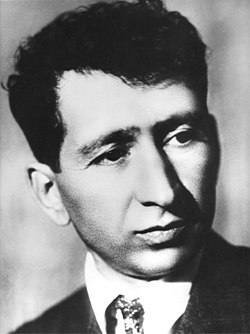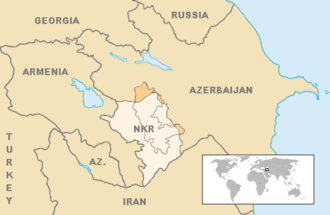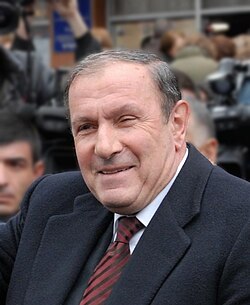Ottoman rule and transition from Iranian to Russian rule (1804–1914)




- 1804: Russo-Persian War begins
- 1813 October 24: Treaty of Gulistan, Karabakh becomes part of the Russian Empire
- 1815: Lazaryan School opened in Moscow
- 1824 October 1: Nersisyan School opened in Tiflis
- 1825 December 14: Decembrist revolt in Saint Petersburg
- 1826: Russo-Persian War begins
- 1827 October 27: Russians capture Erivan
- 1828 February 21: Treaty of Turkmenchay, most of Eastern Armenia becomes part of the Russian Empire
- 1828–1829: Over 50,000 Armenians from Ottoman Empire and Iran migrate to Russian Armenia
- 1828 October 9: Khachatur Abovian and Friedrich Parrot reach the summit of Mount Ararat for the first time
- 1836: Polozhenie (Statute) decree allows Armenian language schools in the Russian Empire, regulates the Armenian church
- 1840: Armenian Oblast disintegrated
- 1848 April 14: Khachatur Abovian disappears
- 1850: Erivan Governorate established
- 1858: Wounds of Armenia published in Tiflis
Armenian national liberation movement
- 1862 August 2: Zeytun uprising
- 1863: Armenian National Constitution
- 1872: Mshak starts to be published in Tiflis
- 1874: Gevorkian Theological Seminary opened in Ejmiatsin
- 1878: Russo-Turkish War begins, Kars becomes part of Russia, Kars Oblast established
- 1878 March 3: Treaty of San Stefano
- 1878, June 13 – July 13: Congress of Berlin
- 1881 March 1: Alexander II of Russia assassinated by anarchists, Alexander III of Russia becomes emperor
- 1882: Armenian newspapers and schools closed in the Russian Empire
- 1885: Armenakan Party founded in Van
- 1887: Social Democrat Hunchakian Party founded in Geneva, Switzerland
- 1888 April 25: Raffi dies in Tiflis
Armed movement (1889–1907)
- 1889 May: Bashkale clash
- 1890: Armenian Revolutionary Federation founded in Tiflis
- 1890 September 27: Gugunian Expedition
- 1892: Mkrtich Khrimian becomes Catholicos of All Armenians
- 1894 October 20: Nicholas II becomes Emperor of Russia
- 1894: First Sasun Resistance
- 1894–1896: Hamidian massacres
- 1895 October: Zeitun Rebellion begins
- 1896 June 3–11: Defense of Van
- 1896 August 26: Ottoman Bank Takeover
- 1897 July 25–27: Khanasor Expedition
- 1901 November: Battle of Holy Apostles Monastery
- 1903 June 12: depriving the Armenian Church of the right of administering its own property
- 1904: Second Sasun Resistance
- 1905 January 22: Revolution of 1905 starts in Russia
- 1905–1906: Armenian–Tatar massacres of 1905–1906
- 1905 July 21: Yıldız assassination attempt in Constantinople
- 1906 March: 1906 Russian legislative election
- 1907 May: Battle of Sulukh with the Kurds, Kevork Chavush killed.
- 1907 October 27: Mkrtich Khrimian dies
Second Constitution Era (1908–1914)
- 1908 July 3: Young Turk Revolution began.
- 1908 July 24: Abdül Hamid II announced restoration of the constitution.
- 1909 March 31: 31 March Incident
- 1909 April: Adana massacre
- 1909 April 27: Abdul Hamid II deposed from power
- 1911: George V becomes Catholicos of All Armenians
- 1912 January: Over 150 members of the Armenian elite arrested for "revolutionary" activities in Russia.
- 1914 February: Armenian reform package





















